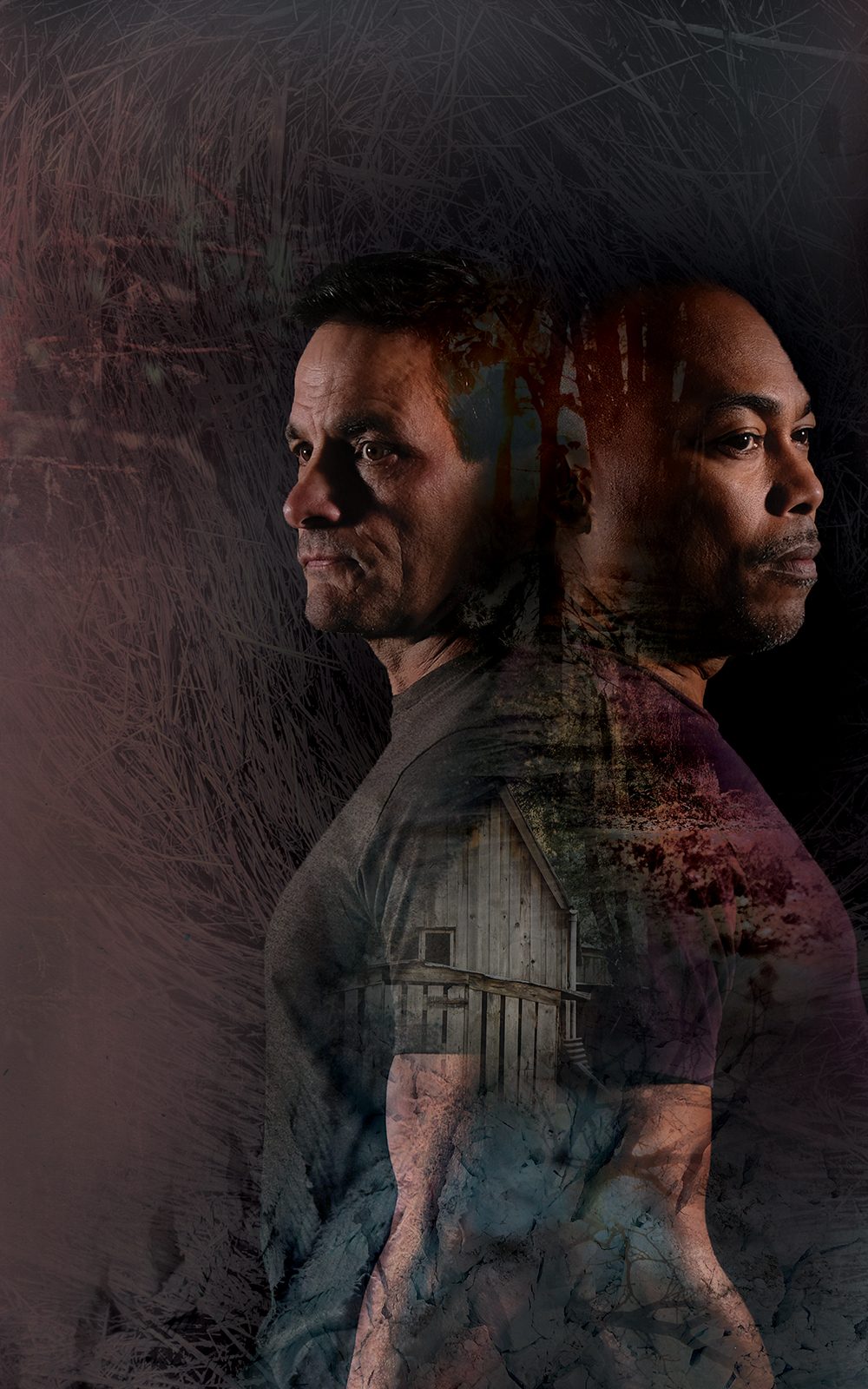 |
| The promotional image for Blood Knot on APT's site. |
I had a bit of trepidation hearing about the play we'd be seeing after learning from a friend Dana Pellebon on Facebook that APT cast Jim Davita, a white actor, to play the role of the light-skinned brother from South Africa in the play. (You can read a couple of articles quoting Dana.) I don't think I would have chosen to buy tickets to see the play; however, Josh bought them during the early-bird sale in March, so I wasn't not going to go. I'm glad I went.
The play is being performed in the Touchstone Theatre--APT's smaller, indoor theatre. Having purchased the tickets so early, we got tickets in the front row, house right, with a thrust stage. It was fun to see the set up close after seeing the floor being installed during the tour.
Gavin Lawrence played the darker-skinned of the two brothers. As always, the acting was excellent. I've been familiar with Davita's acting for years and was happy to see that Lawrence, who has 30 years of theatre experience, was an equally commanding presence on stage.
I enjoyed the writing, the acting, the set, and how they handled the scene changes--all very creative. And it was also challenging to watch. It was difficult to hear Zack (Lawrence) describe his interactions with a woman in the past that sounds pretty clearly like rape by the time he finishes the story. I found it pressing on old trained feelings that I as a liberal would prefer not to feel. And that was only the start of what got pressed.
I found myself distracted throughout the performance by the fact that Davita was a white actor playing a light-skinned black man. He plays the more educated of the two: he knows how to read when his brother doesn't, and the writing has Maurie seeming more sensible than the more-irrational-seeming Zack. More liberal discomfort. Why did Fugard (a white South African) write it this way? Discomfort in the theatre is powerful, and he sure puts it to good use.
Maurie drops the n-bomb six or seven times in the play. The audience gasped the first time (I kept myself from laughing); while I knew it was coming I still cringed. The penultimate scene in the play is almost a dream sequence where the brothers are playing out stereotypical oppressive/submissive white/black roles. Even in the moment, I could tell metaphor and allegory abounded, although I couldn't grok it all at that point--and I am sure I haven't yet, either.
And I got more and more frustrated. During that scene, It seemed clear that part of what was happening was a light-skinned black man, who had passed for white for a time, was caught between hating the oppression he lived with and hating himself for casting part of his identity aside so he could have a respite from the oppression. So, to see a white actor playing this part, the inner struggle I just described seemed to be supplanted by simple racial tension. I thought it would have had more impact had the part been played by a light-skinned black man.
Then there's a twist: in researching his acting history, I happened upon A Statement on "Blood Knot" Casting from Actor Gavin Lawrence. I had wondered what his opinion was, and I sure found out. He states that if Maurie had been played by a black man--no matter how light his skin--when seeing that man call his brother a n---er, a primarily white audience could easily let themselves off the hook, and disengage from the play because "that's not me." I think it would have actually been more powerful for me, but perhaps I overestimate myself.
And the final paragraph:
If what you come away with after having experienced Blood Knot is a problem with the casting, then I humbly submit that you’ve missed the point, or that you have some other agenda – either way I have to say that you’re clearly not “woke.” And for those who jump on social media bandwagons based on headlines without doing your homework, please work on your critical thinking skills. When a situation of racial or cultural appropriation in the American theatre truly calls for response and action, I’ll be right there with you. This production, however, is not one of them.OK, so this all isn't as simple as I thought. I left the playing feeling like a good cry was in order (I hate watching inhumanity) and agitated by the casting choice, thinking it was a misstep. I can see now that there's a whole lot more to think about. And learn about.
No comments:
Post a Comment